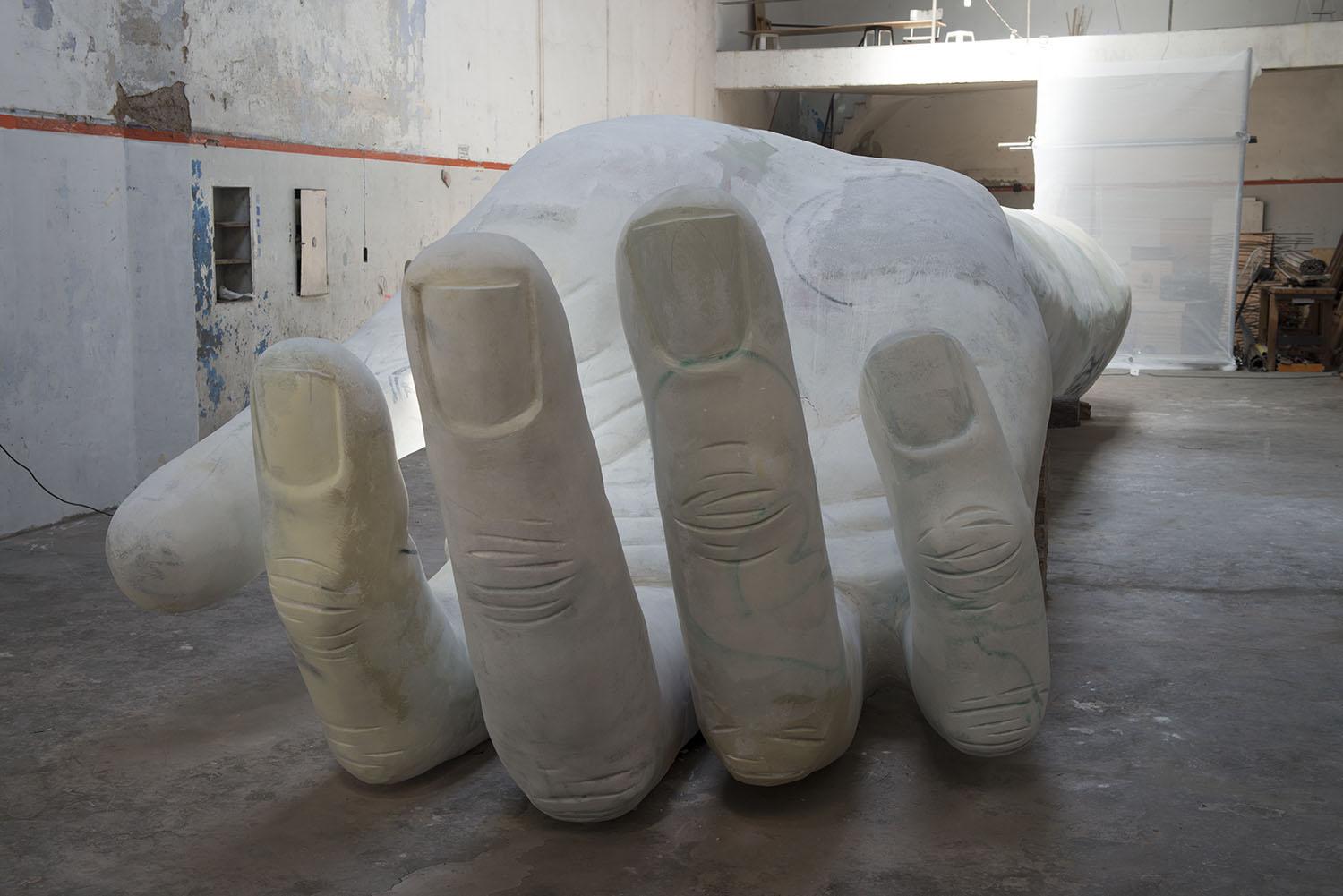Huffmann’s work condenses hybrid imaginaries in drawings, paintings, sculptures, installations and texts. In some of his pieces, the artist reuses waste machinery or agricultural elements, in a way that recovers not only their material value, but also activates their stories and energies: what was previously oriented towards production becomes an artistic object that instrumentalizes the phantasmagorias of his previous life. He constructs amulet-objects and totem-sculptures, and creates installations that function as ritual settings for a shamanic ecology that recycles generations of technology.
His works present stories constructed with diverse materialities and procedures, between archeology and fictional genealogy of the recent past. He populates the road horizons, public squares or the white cube of the gallery with images and situations in which chaos and order, and technology and ruin, coexist. His practice finds a fruitful tension between the large scale that dominates his exhibitions and the research laboratory that is his countless notebooks, digital and paper drawings, and his interventions in magazines. In some of his most paradigmatic works, he transforms harvesters, luxury cars or competitive trucks into protagonists of dystopian scenes that he places in dusty Patagonian landscapes or in the stubble pampas, as if they were science fiction film sets. South American and apocryphal.
In Huffmann’s works you can read several layers of sedimentation consolidated in a coming and going between analogue and digital. His pieces reflect on the complexity and contradictions of the image and its indecipherable degrees of verisimilitude in contemporary life. Sometimes, in his production, he starts from photographs taken by himself or extracted from advertisements, and intervenes in them through a painting that draws on mass media imagery and that Huffmann makes return from various temporalities: traces of anime and video games, the pixel as a unit of meaning in the early 2000s, punk slogans written in English, bones, skulls, idealizations of luxury consumption and almost endearing portraits of old hardware models.
Throughout his production, Huffmann deploys a poetics of permanent crisis, in which obsolete and fragmentary objects become metaphors for the existences that subsist and flourish on the margins of the technocratic system, which is deployed equally in the fields and in the cities.


 Huffmann Carlos
Huffmann Carlos